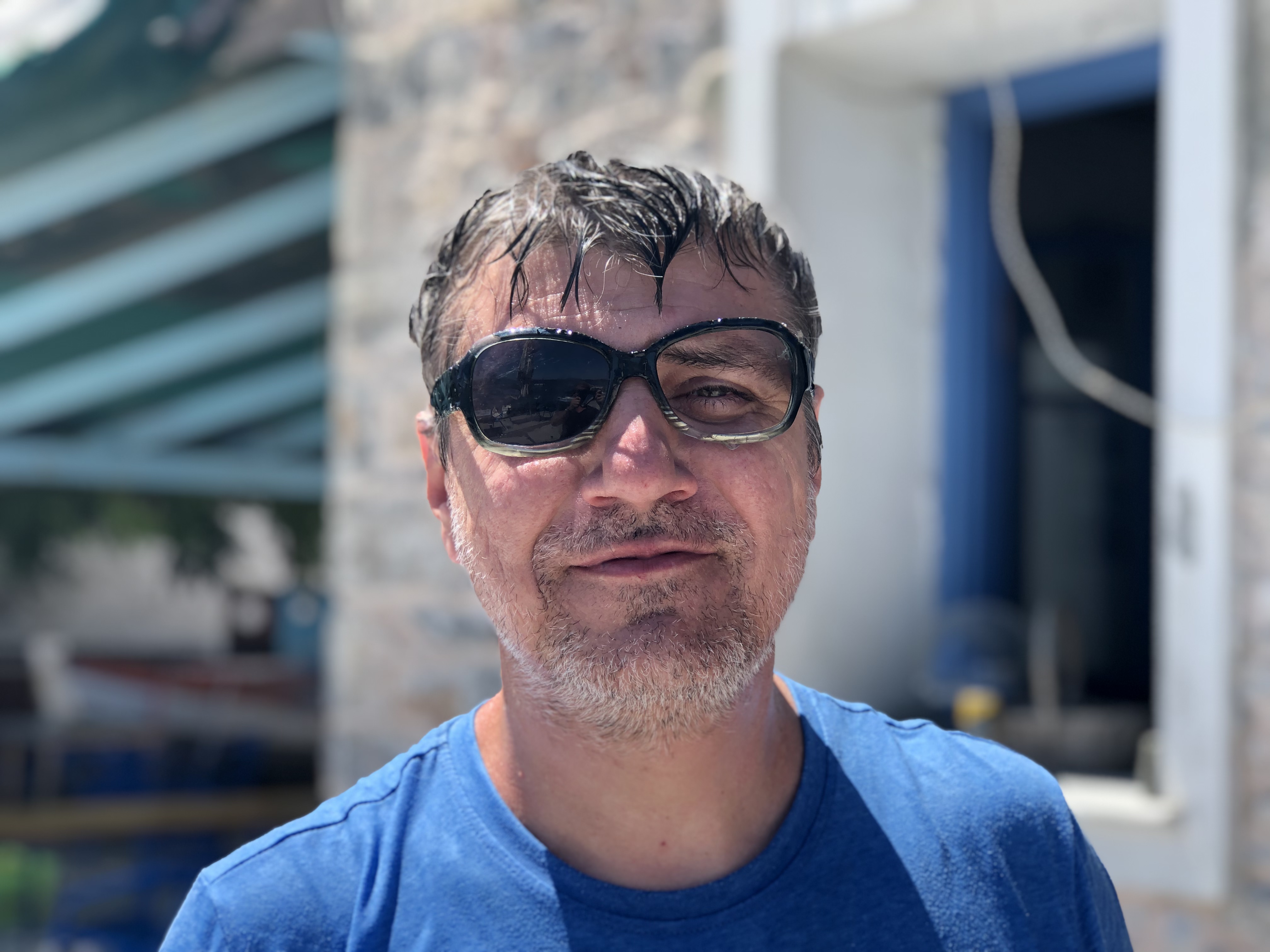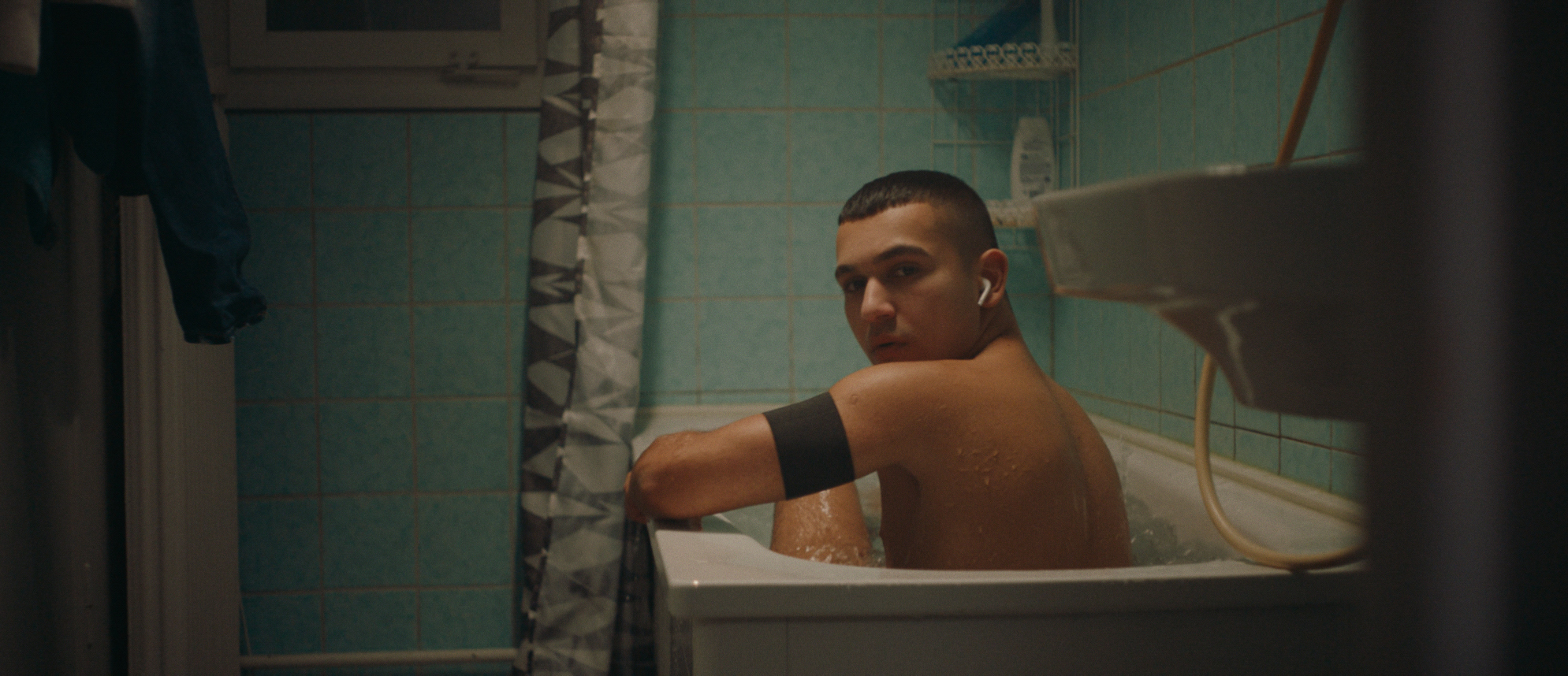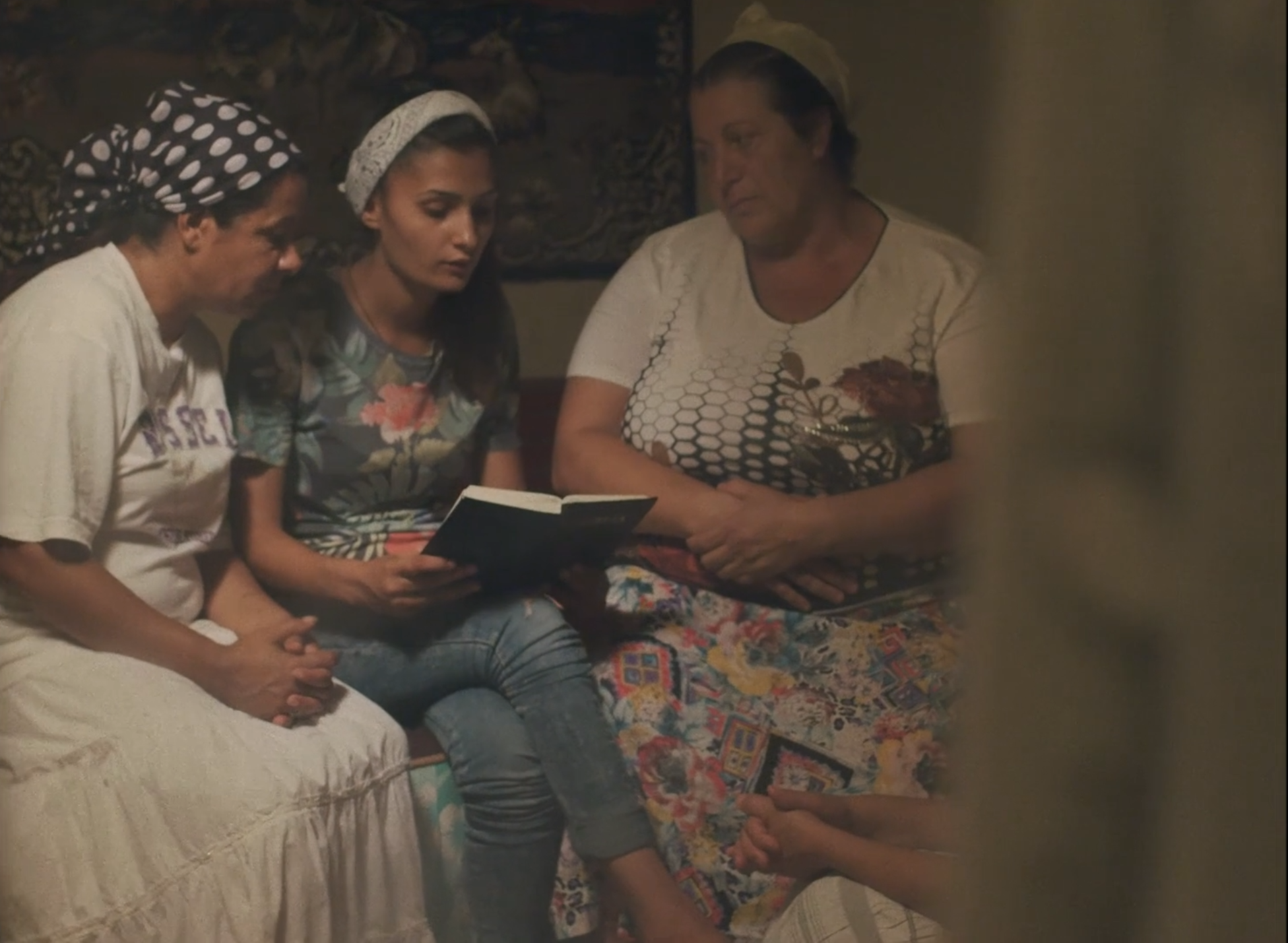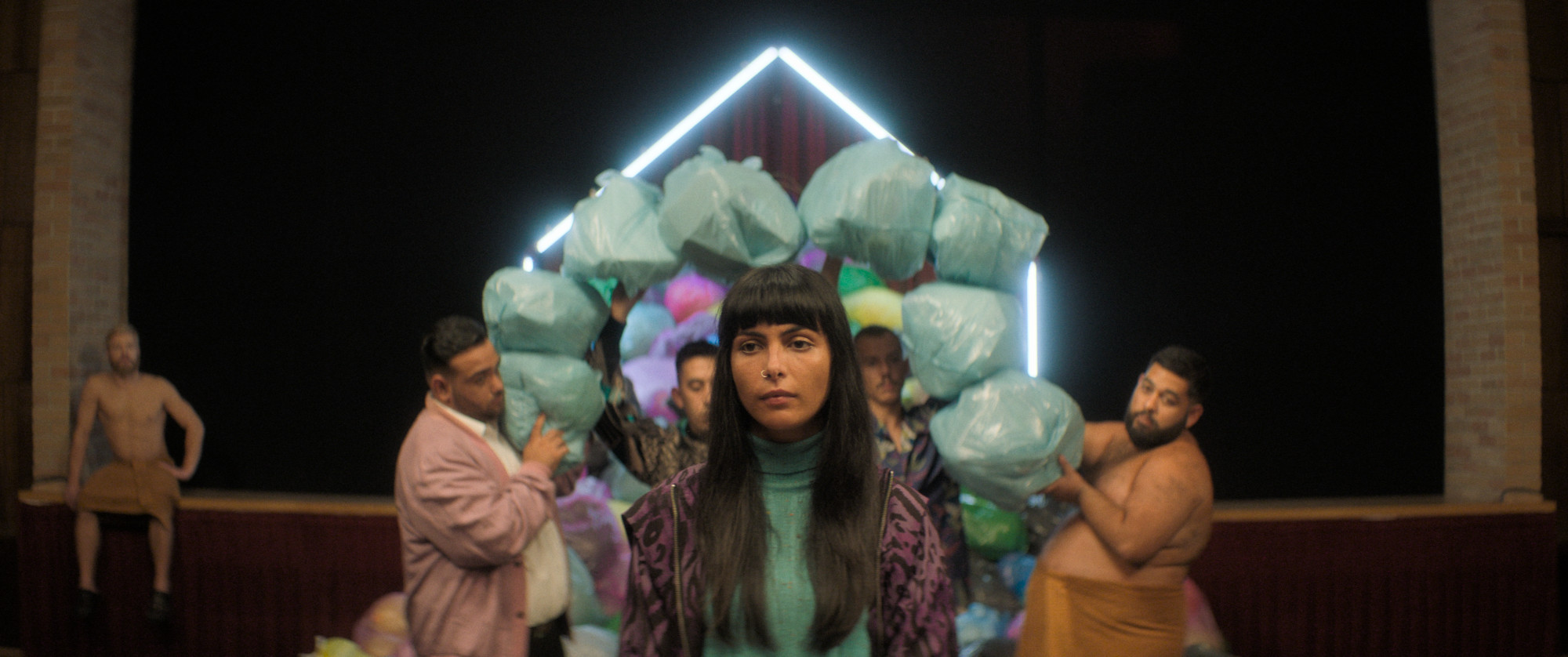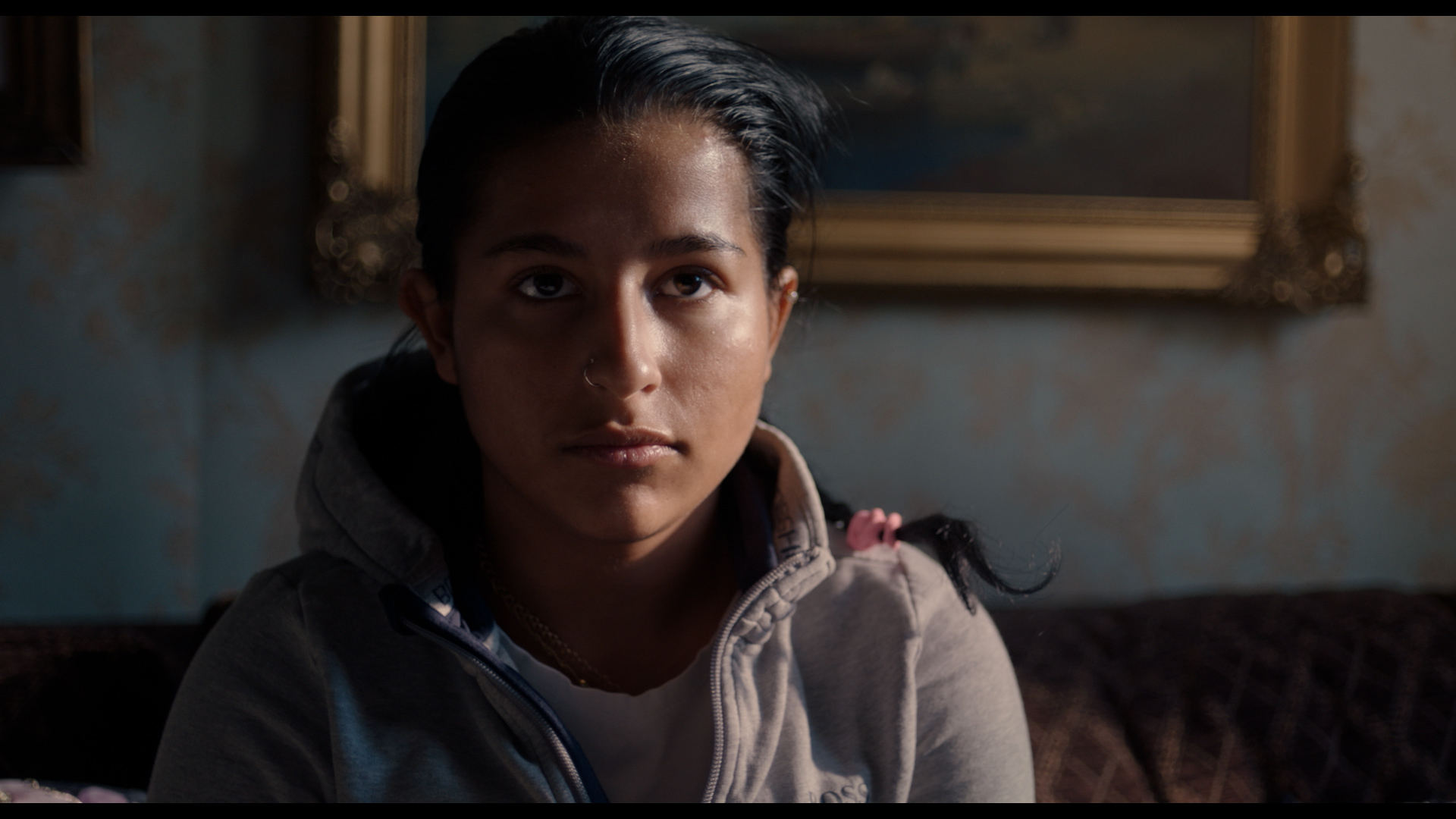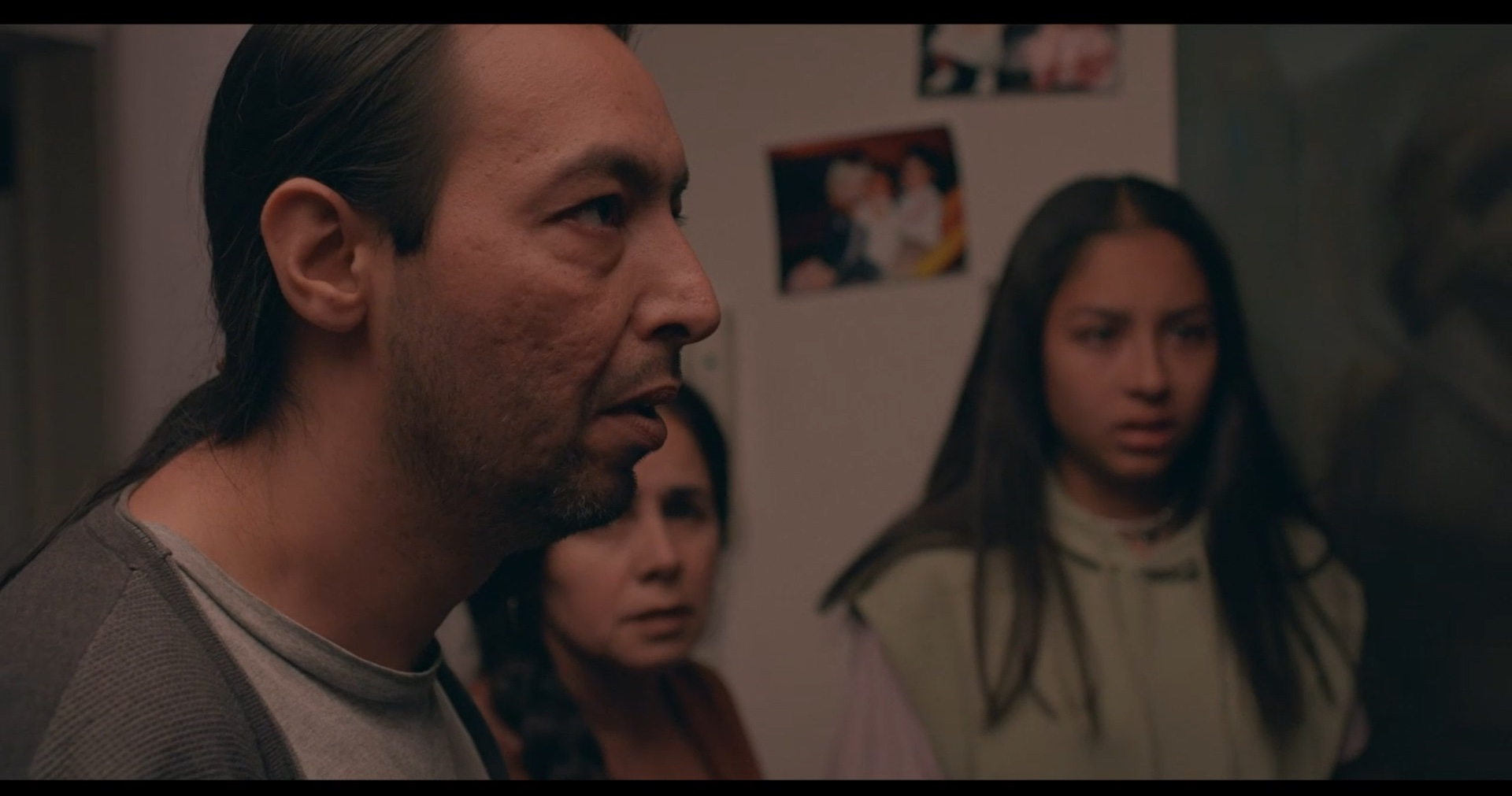



︎AKE DIKHEA? 2024: Democracy in Focus
15.09.2024In 2024, AKE DIKHEA? responds to the current threats to democracy: the electoral success of far-right parties in almost all European countries, the social divide, the growing support for misanthropic movements.
We take a close look at current social developments from the perspective of marginalised groups and, above all, their contributions to a free and just society. For it is groups such as Roma who are most affected by anti-democratic tendencies – and who at the same time have been fighting on the front line against oppression for many years and from an intersectional perspective, be it against the white supremacy of the dominant society, against exploitative mechanisms of capitalism or against patriarchal thought patterns in their own families.
Both opening films - the short fiction film “Mami” by Alecio Araci and the documentary “Narrow Path to Happiness” by Kata Ólah – show the effects of homophobia in society and in one's own family and pose the question of how one can free oneself from the feeling of being a minority within a minority. Another highlight of the festival, an exclusive preview of the documentary film “Riefenstahl” by Andres Veiel, deals with the connection between art and politics and the mechanisms of manipulation that we are currently encountering again.
Alongside our selection of films, we will host a range of panels, including "Archival Justice: Decolonizing the Gaze," which will explore the safeguarding of marginalized histories, emphasizing the critical importance of ensuring equitable access to cultural heritage. The panel "Self-Performing Romani Identities – Actors in the Spotlight," amplifying the voices of filmmakers advocating for enhanced visibility and agency within the film industry. With the ‘Visegrad focus’, we are also dealing with Central and Eastern Europe as an important region for political developments throughout Europe.
Join us for this immersive experience as we come together to champion Romani cinema!
We take a close look at current social developments from the perspective of marginalised groups and, above all, their contributions to a free and just society. For it is groups such as Roma who are most affected by anti-democratic tendencies – and who at the same time have been fighting on the front line against oppression for many years and from an intersectional perspective, be it against the white supremacy of the dominant society, against exploitative mechanisms of capitalism or against patriarchal thought patterns in their own families.
Both opening films - the short fiction film “Mami” by Alecio Araci and the documentary “Narrow Path to Happiness” by Kata Ólah – show the effects of homophobia in society and in one's own family and pose the question of how one can free oneself from the feeling of being a minority within a minority. Another highlight of the festival, an exclusive preview of the documentary film “Riefenstahl” by Andres Veiel, deals with the connection between art and politics and the mechanisms of manipulation that we are currently encountering again.
Alongside our selection of films, we will host a range of panels, including "Archival Justice: Decolonizing the Gaze," which will explore the safeguarding of marginalized histories, emphasizing the critical importance of ensuring equitable access to cultural heritage. The panel "Self-Performing Romani Identities – Actors in the Spotlight," amplifying the voices of filmmakers advocating for enhanced visibility and agency within the film industry. With the ‘Visegrad focus’, we are also dealing with Central and Eastern Europe as an important region for political developments throughout Europe.
Join us for this immersive experience as we come together to champion Romani cinema!
︎AKE DIKHEA? 2023: Review of the Year
21.12.2023
2023 – What a great festival year!
With its 7th edition between 23 and 29 October 2023, the International Roma Film Festival AKE DIKHEA? was able to consolidate and expand its unique position as the world's leading Roma film festival. Under the patronage of Minister of State for Culture Claudia Roth and in partnership with the European Film Academy, the festival invited people to show the courage of their imagination: With the motto "Decolonise Imagination", it posed fundamental questions about artistic production and representation of Roma* in film and art in general. It became clear that Roma filmmakers can take the narrative into their own hands, reshape the meaning of "being Roma" and - in the words of Artistic Director Hamze Bytyçi - proudly show self-determined clichés!
The festival focused on screenings of 20 short, documentary and feature films from 13 countries, two panel discussions on the decolonisation of film archives and on Roma* in pop culture, a captivating flamenco evening and, of course, the audience favourites: the opening and closing evenings with a little glamour and a lot of music! In one week, the packed programme attracted over 1,000 visitors to the BABYLON cinema and the Grüner Salon at the Volksbühne am Rosa-Luxemburg-Platz in Berlin.
In addition, 46 international film professionals travelled to the festival as guests who took part in the specialist programme: the annual meeting of the AVAZYA network of Roma filmmakers, the AVAZYA Film Lab or the online speed dating with leading European short film festivals. For the young audience, the dance star of last year's AKE DIKHEA?, David Kwiek aka Mr Quick, offered a workshop in contemporary dance.
This year, the festival team was supported by over 15 volunteers from the "Kaštenca & Barenca" project, who also brought a fresh, young perspective and a great deal of interest in film. And so we look to the future with great hope
With its 7th edition between 23 and 29 October 2023, the International Roma Film Festival AKE DIKHEA? was able to consolidate and expand its unique position as the world's leading Roma film festival. Under the patronage of Minister of State for Culture Claudia Roth and in partnership with the European Film Academy, the festival invited people to show the courage of their imagination: With the motto "Decolonise Imagination", it posed fundamental questions about artistic production and representation of Roma* in film and art in general. It became clear that Roma filmmakers can take the narrative into their own hands, reshape the meaning of "being Roma" and - in the words of Artistic Director Hamze Bytyçi - proudly show self-determined clichés!
The festival focused on screenings of 20 short, documentary and feature films from 13 countries, two panel discussions on the decolonisation of film archives and on Roma* in pop culture, a captivating flamenco evening and, of course, the audience favourites: the opening and closing evenings with a little glamour and a lot of music! In one week, the packed programme attracted over 1,000 visitors to the BABYLON cinema and the Grüner Salon at the Volksbühne am Rosa-Luxemburg-Platz in Berlin.
In addition, 46 international film professionals travelled to the festival as guests who took part in the specialist programme: the annual meeting of the AVAZYA network of Roma filmmakers, the AVAZYA Film Lab or the online speed dating with leading European short film festivals. For the young audience, the dance star of last year's AKE DIKHEA?, David Kwiek aka Mr Quick, offered a workshop in contemporary dance.
This year, the festival team was supported by over 15 volunteers from the "Kaštenca & Barenca" project, who also brought a fresh, young perspective and a great deal of interest in film. And so we look to the future with great hope
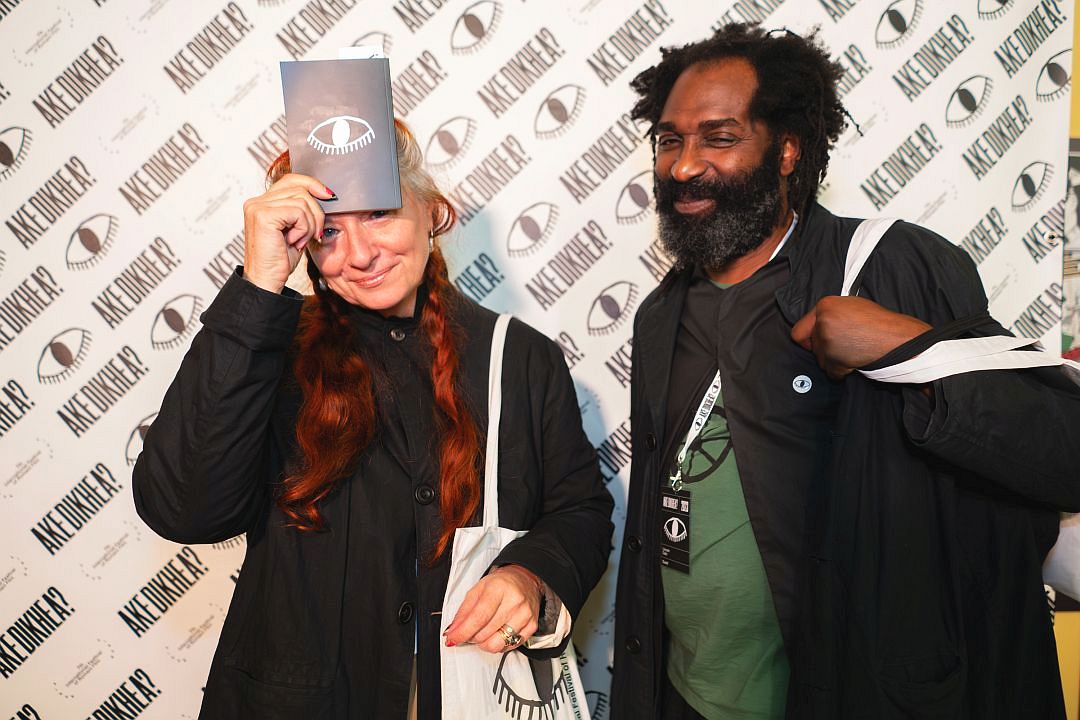
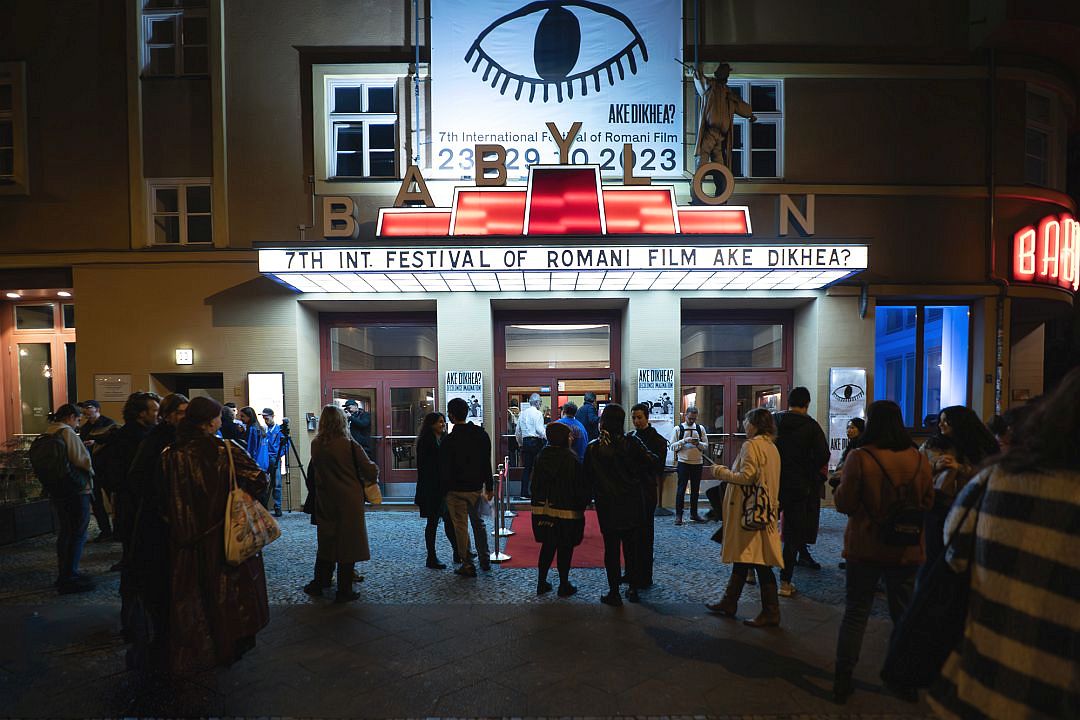
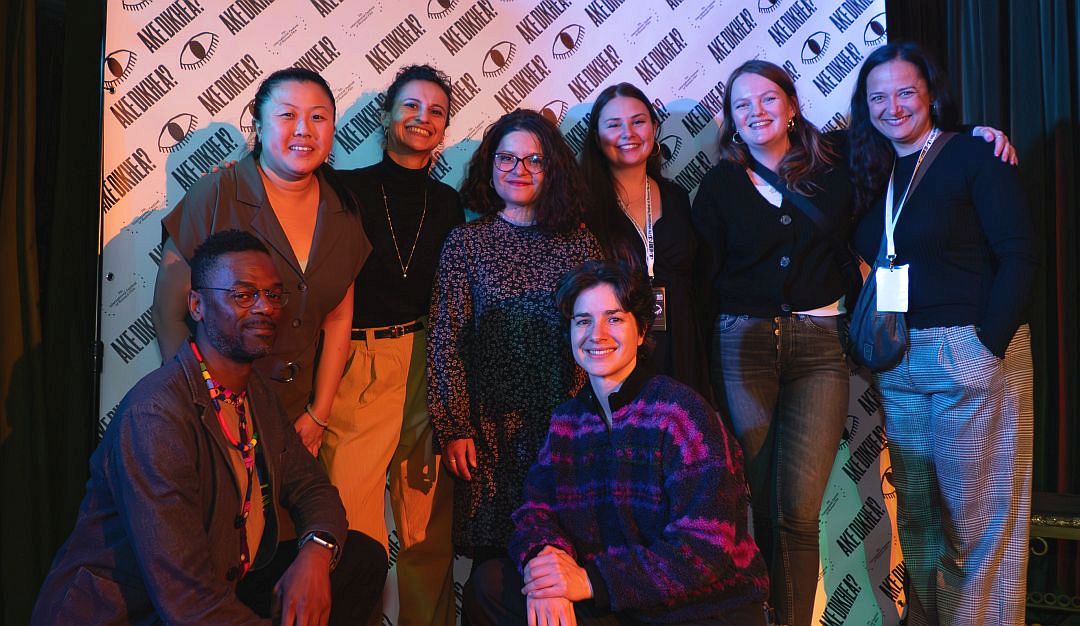
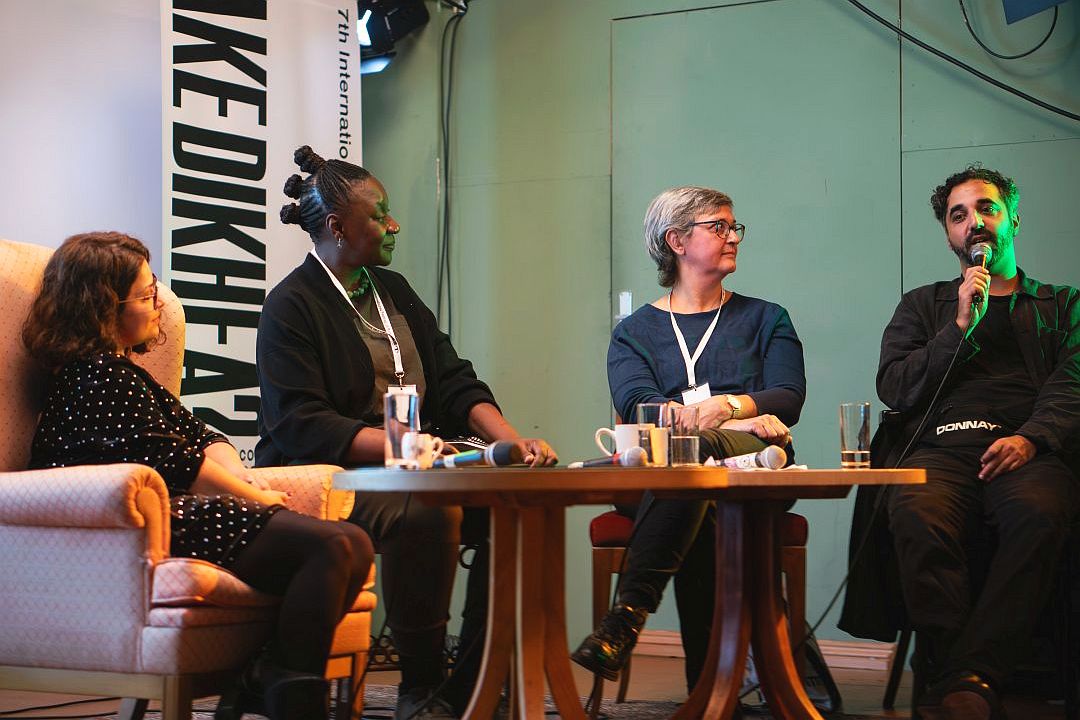
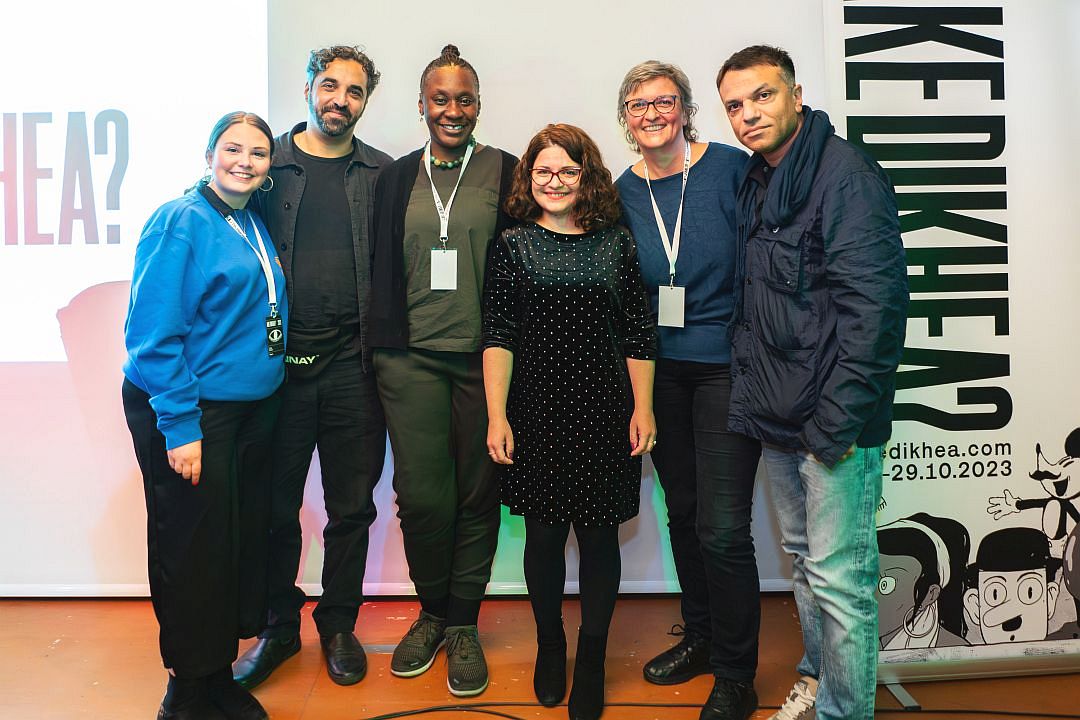
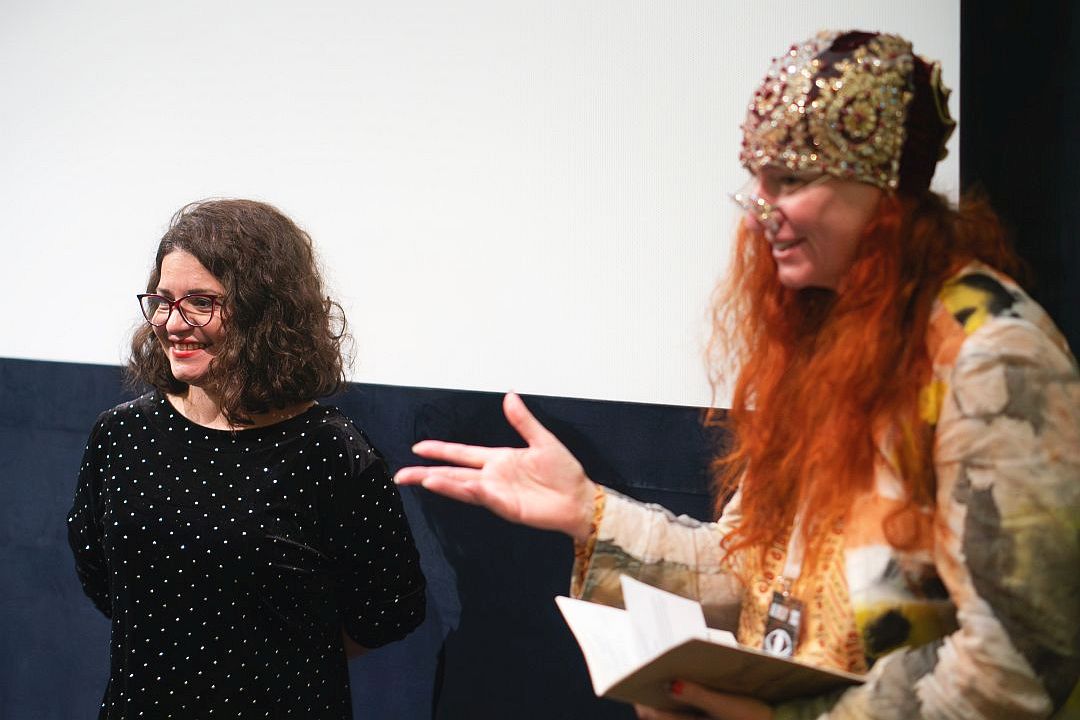
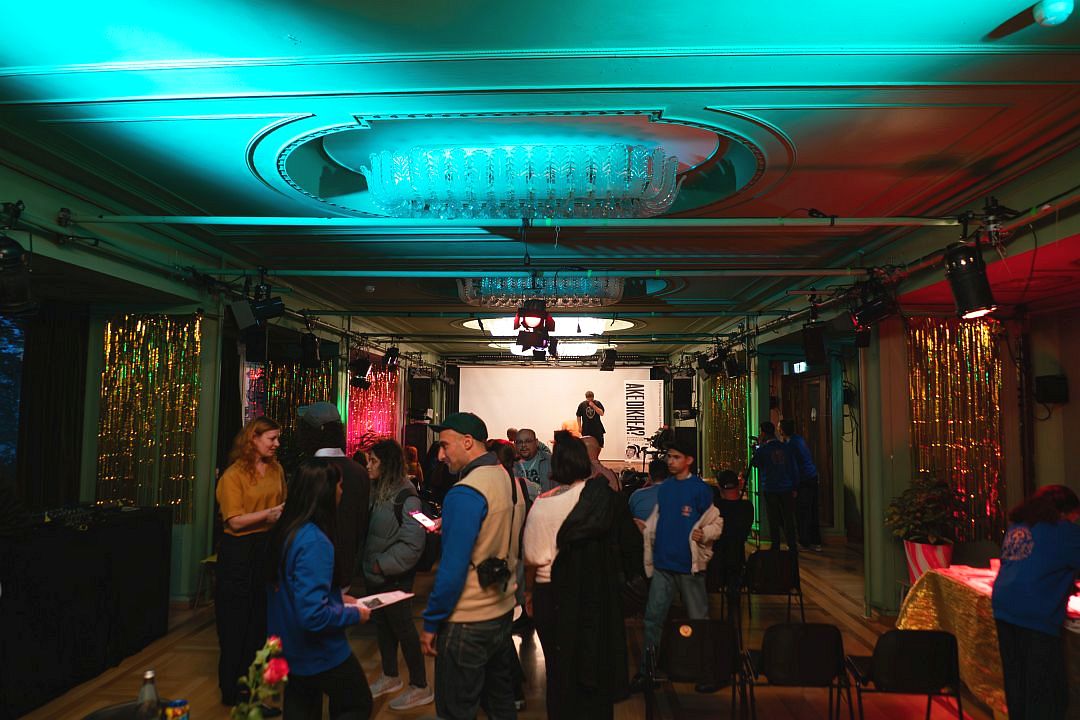
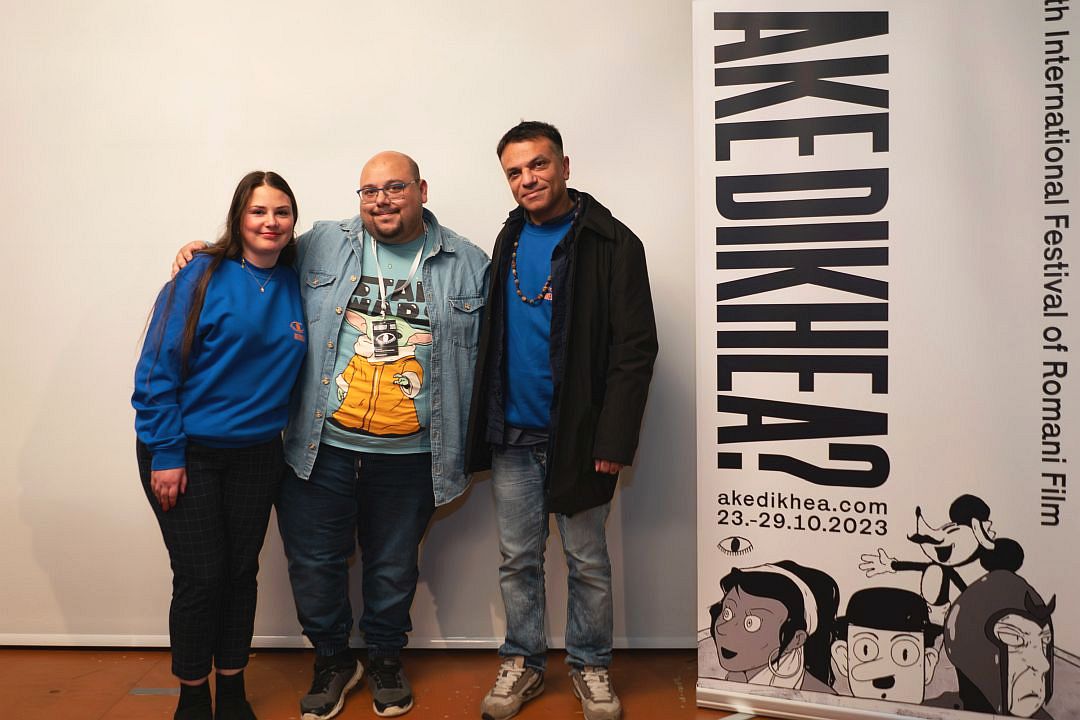
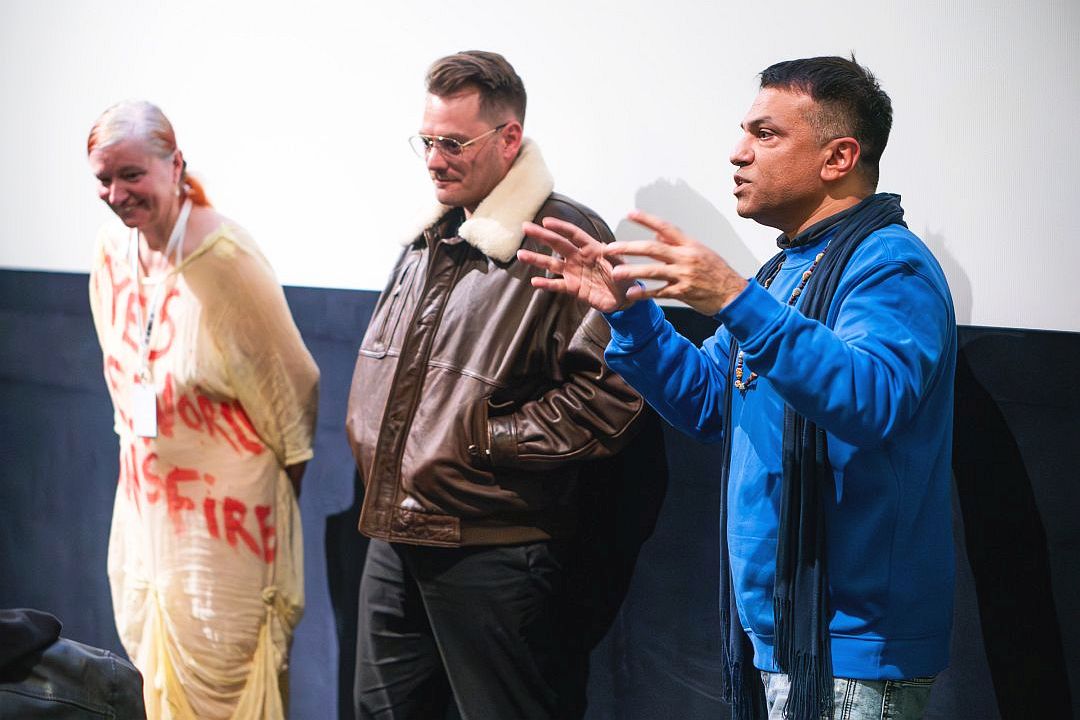
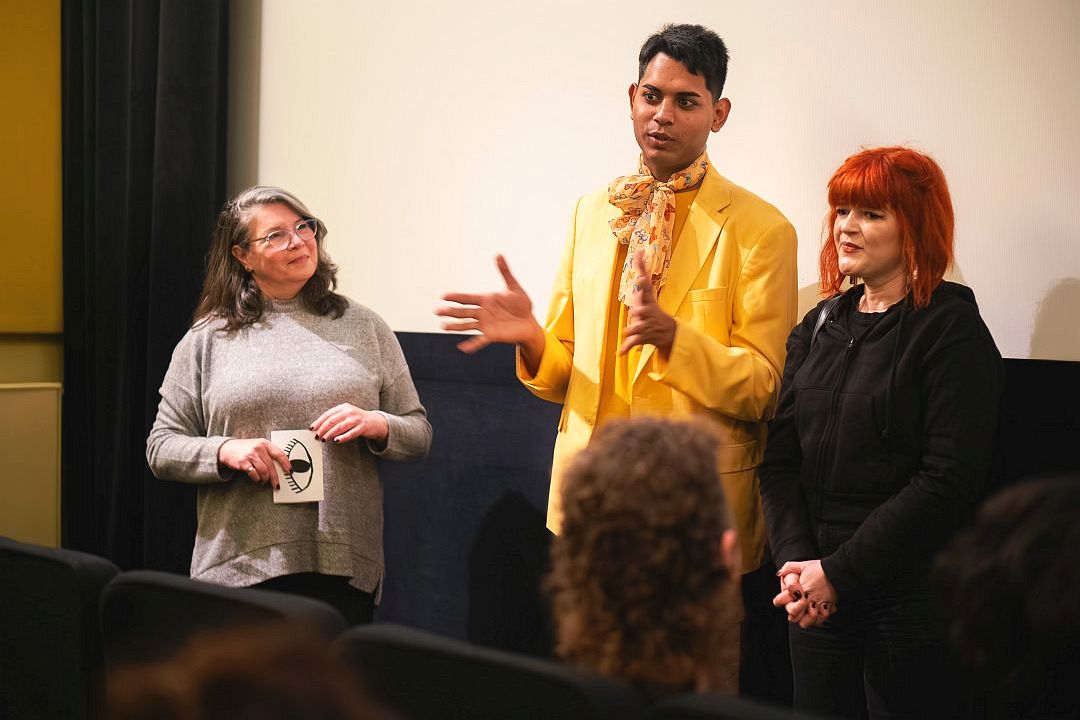

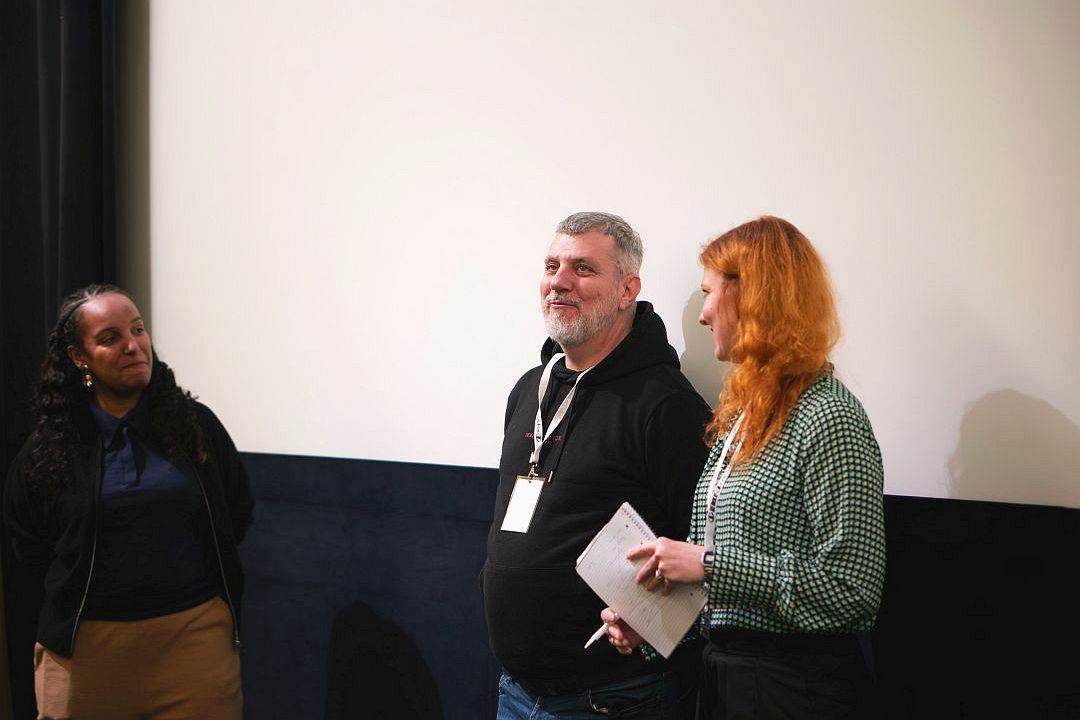
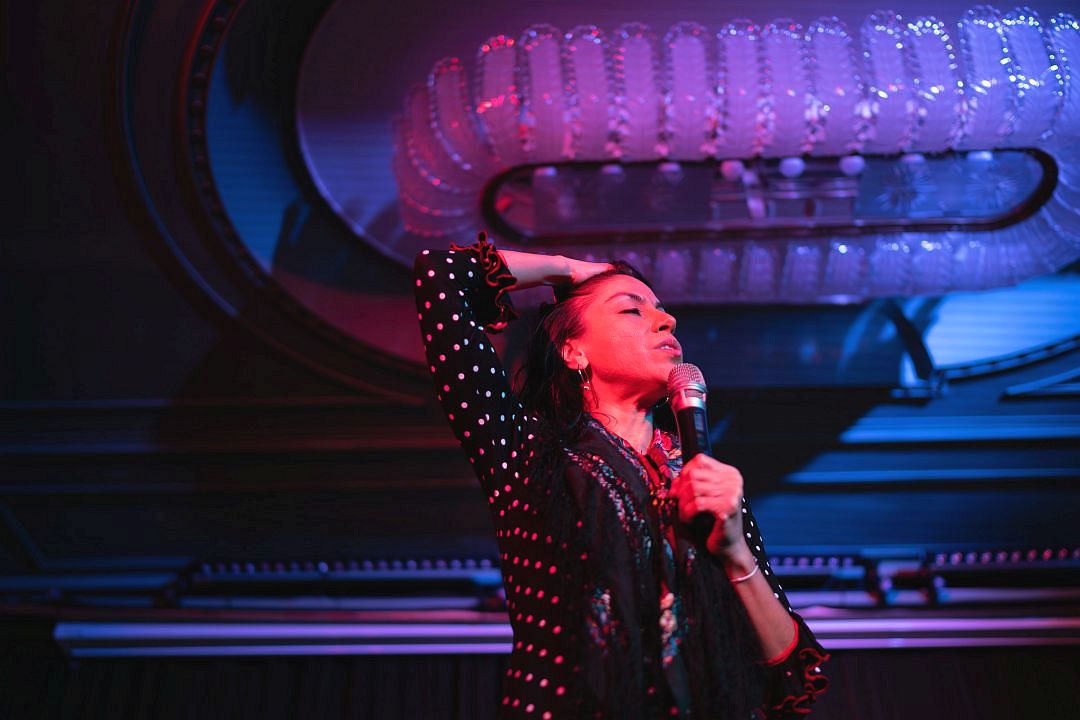
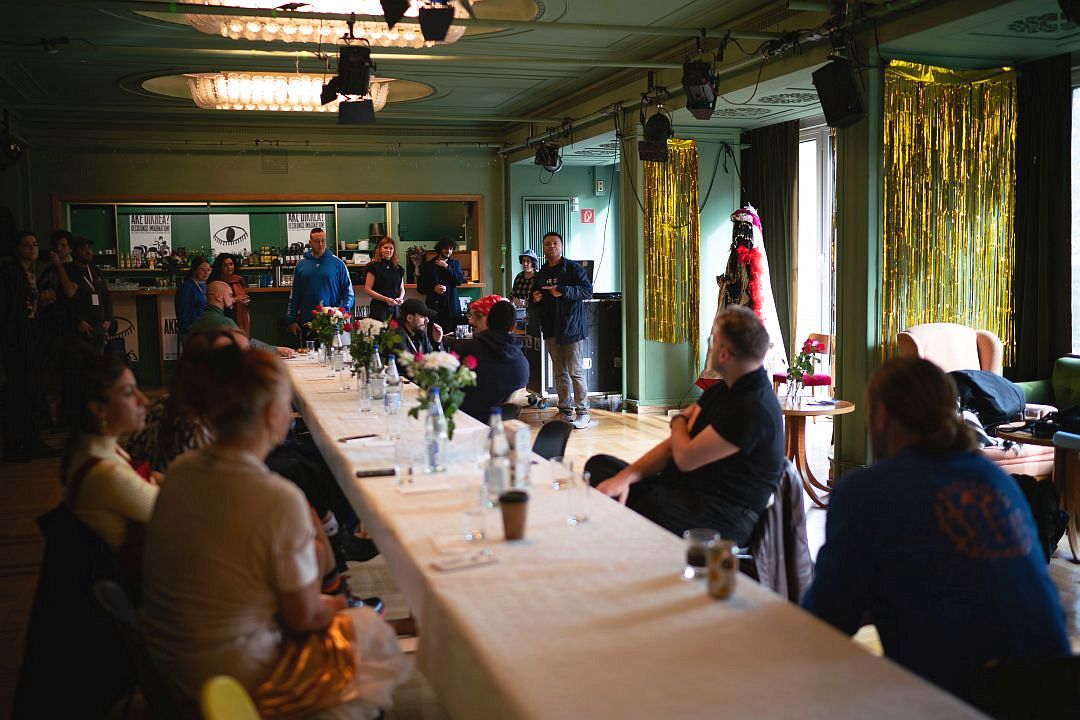
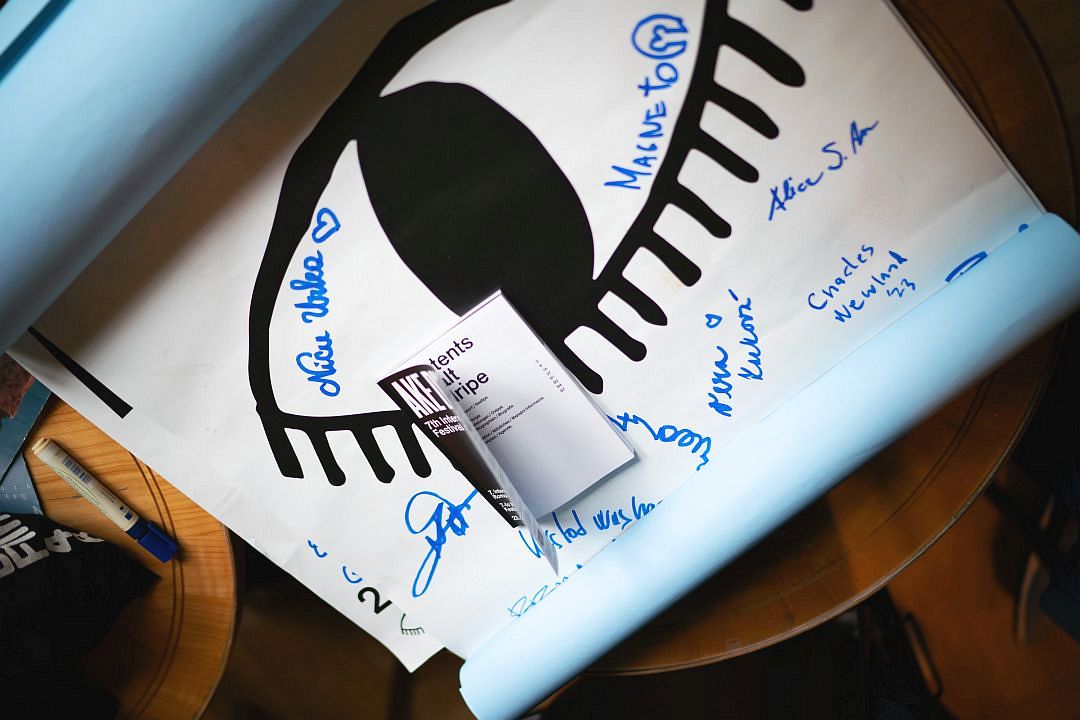
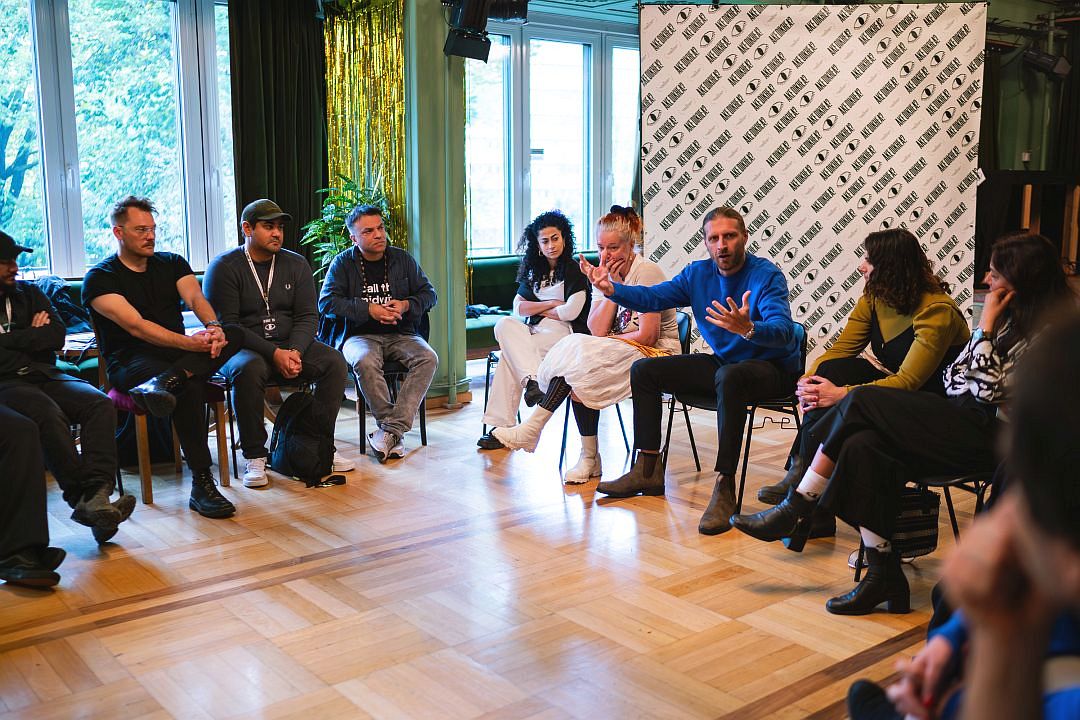
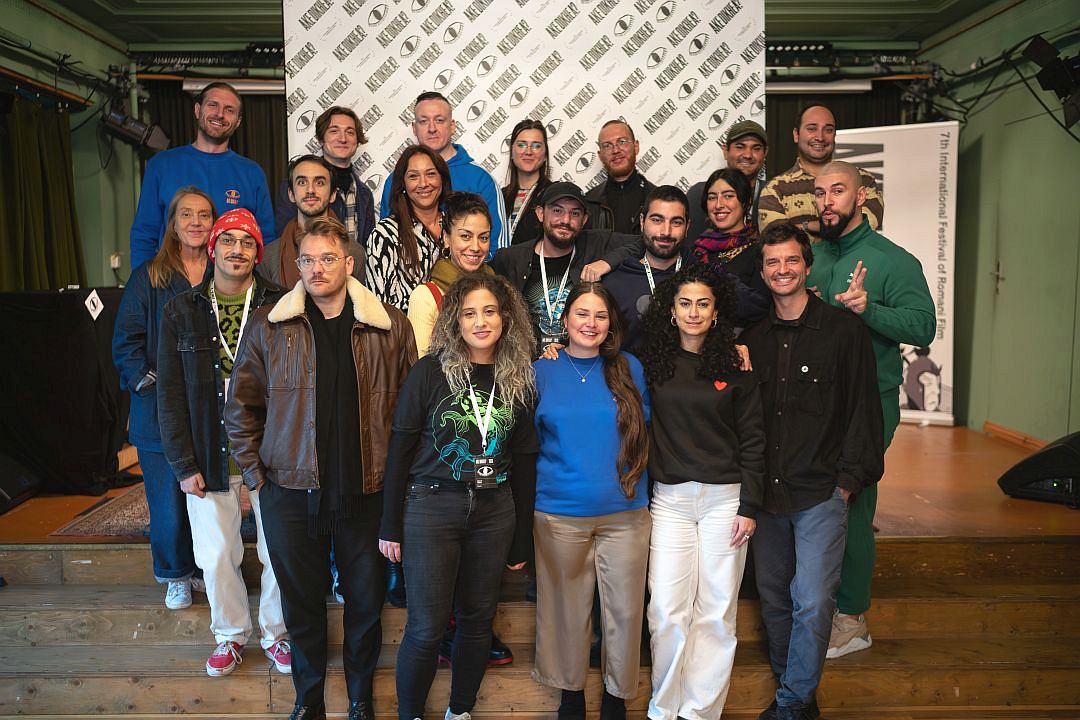
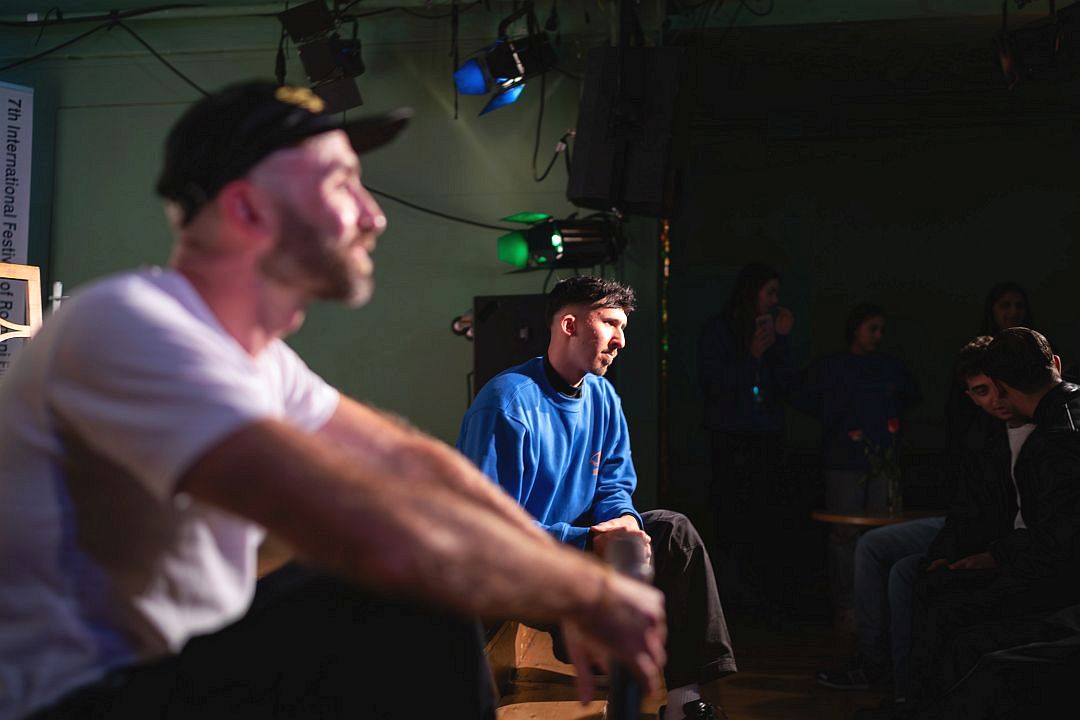
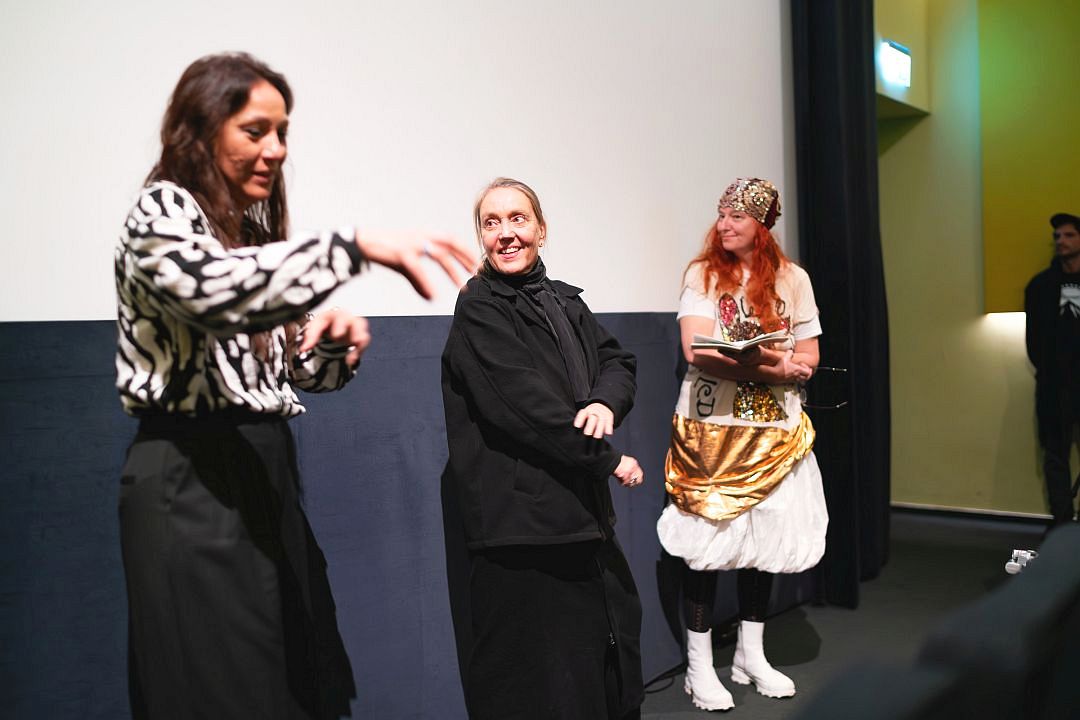
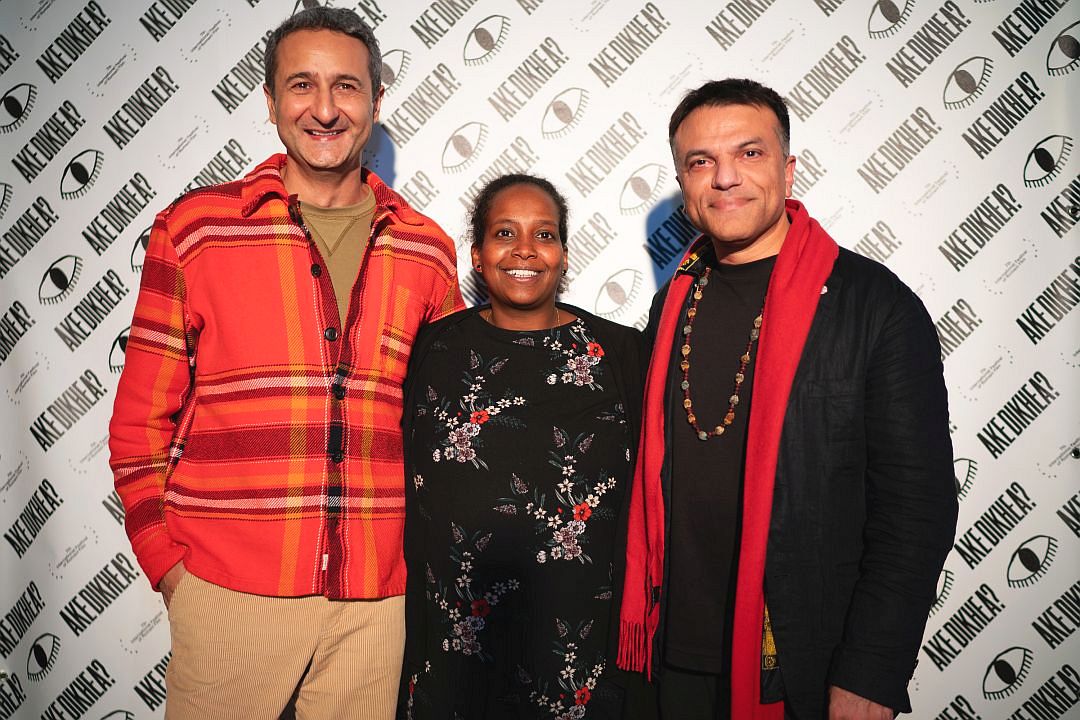

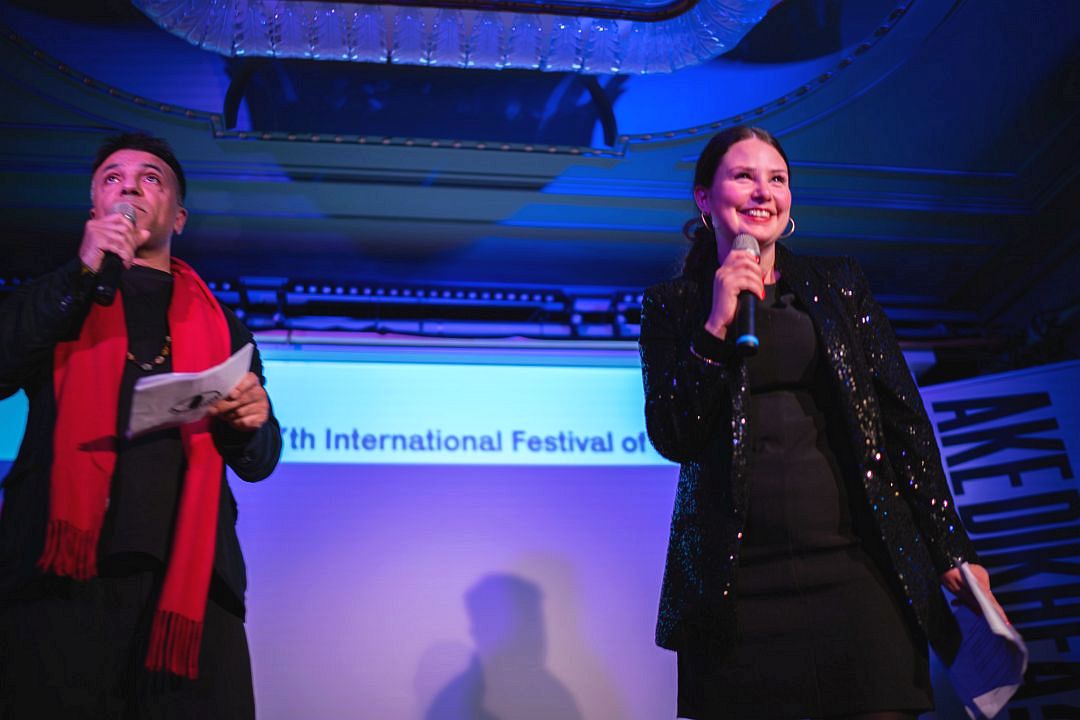
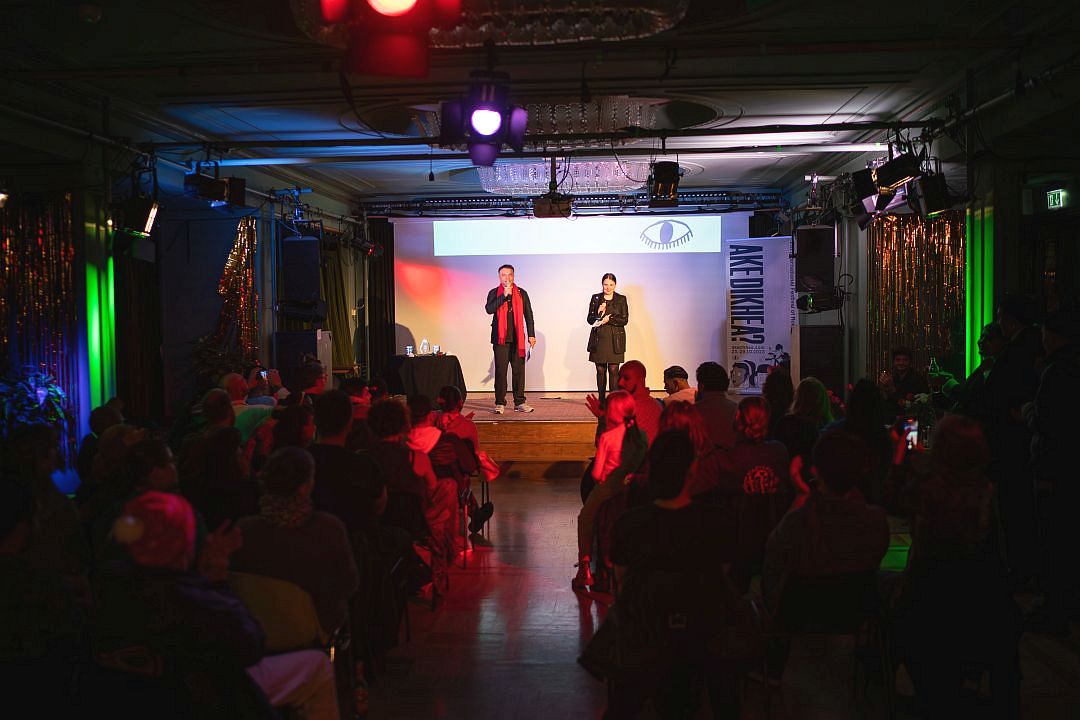
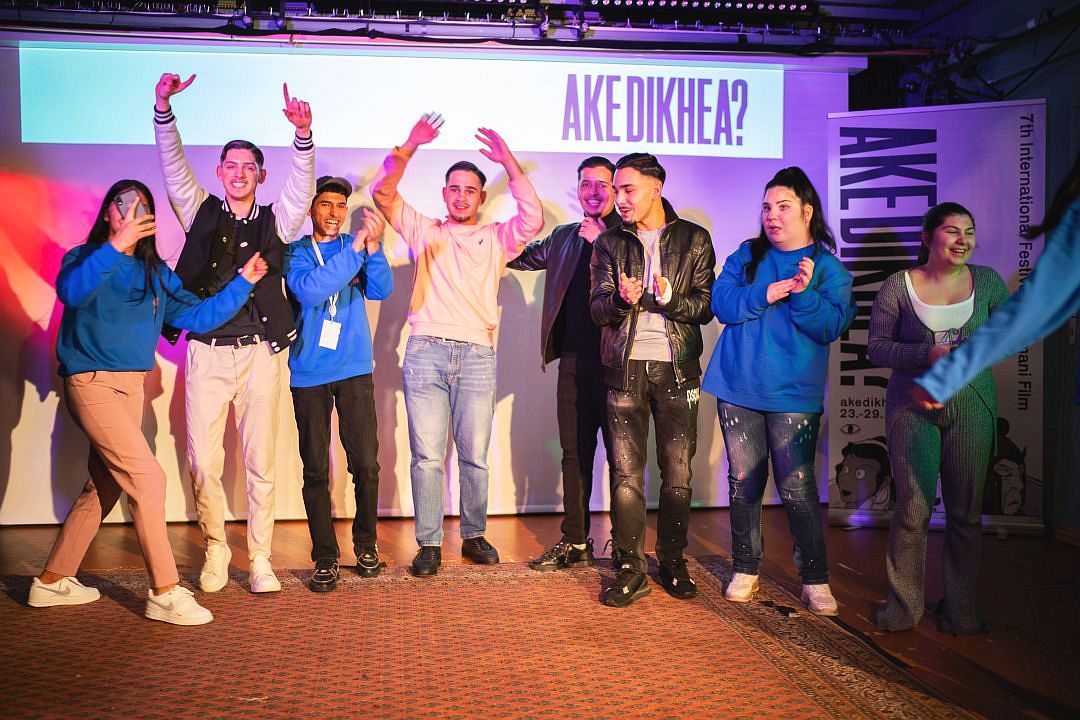
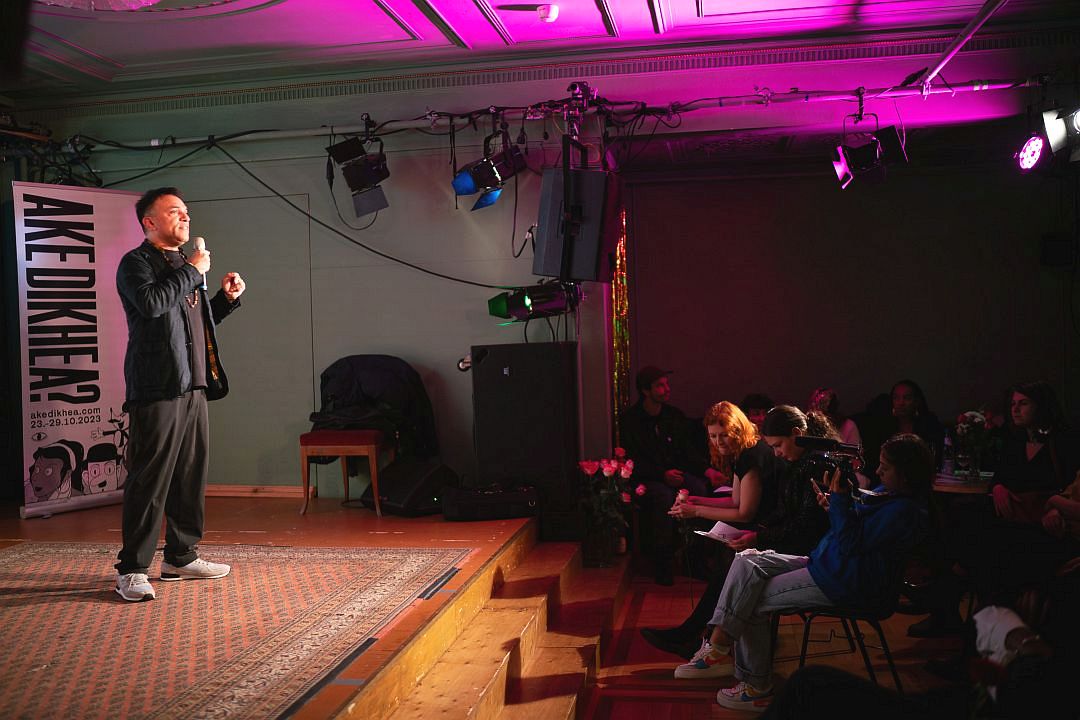
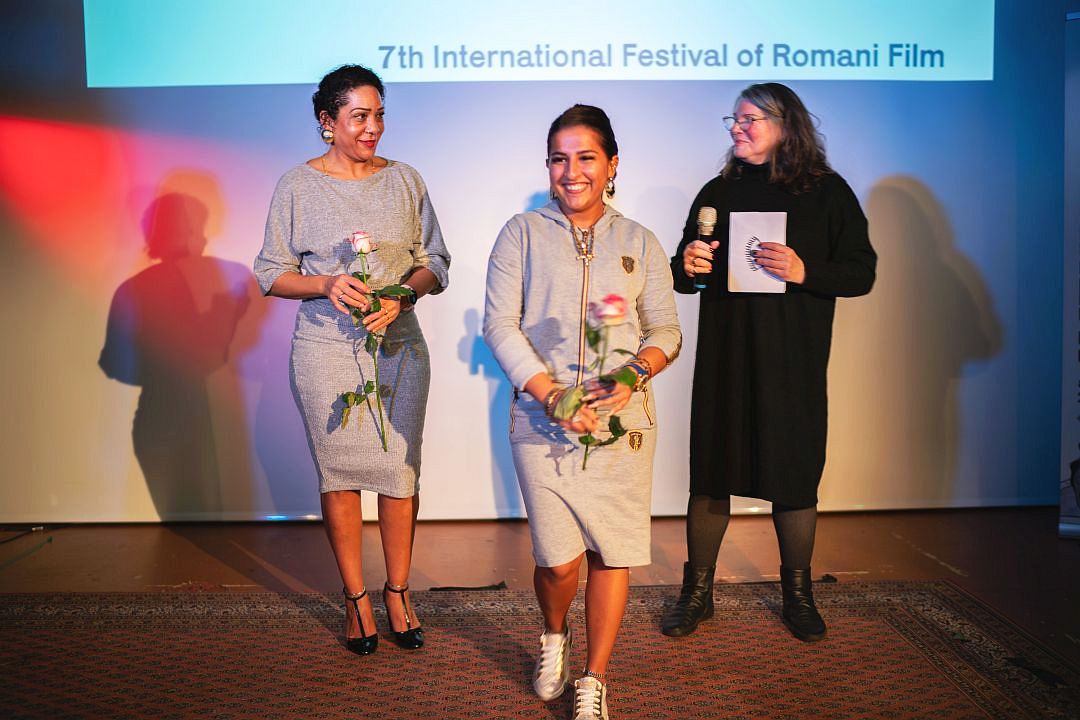
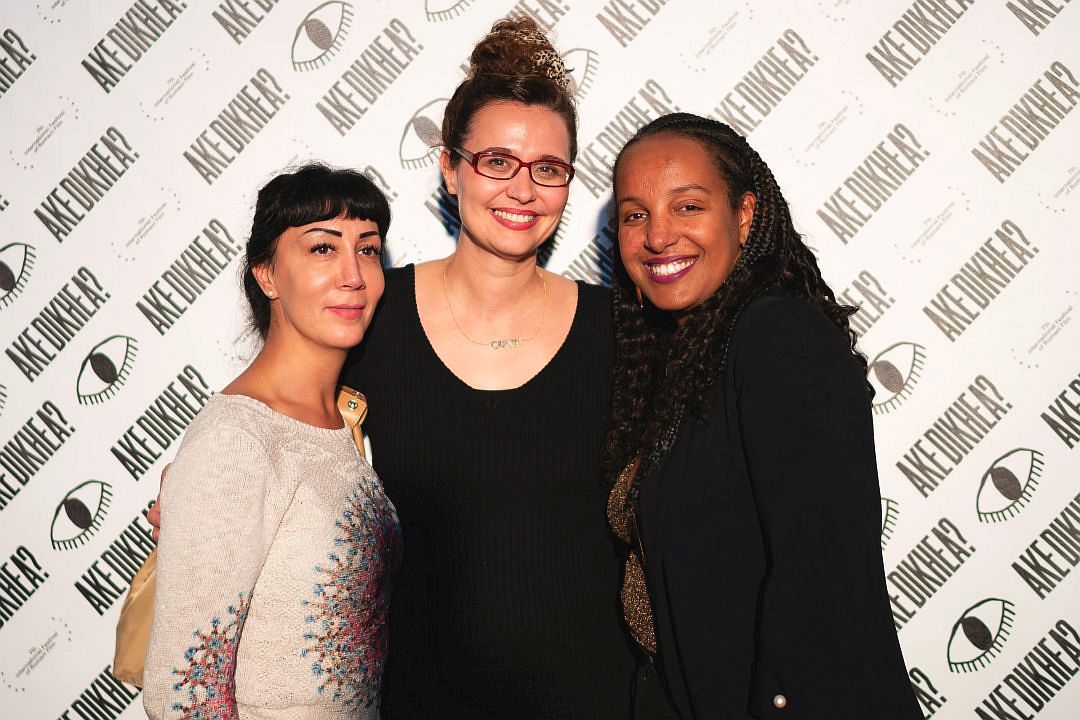
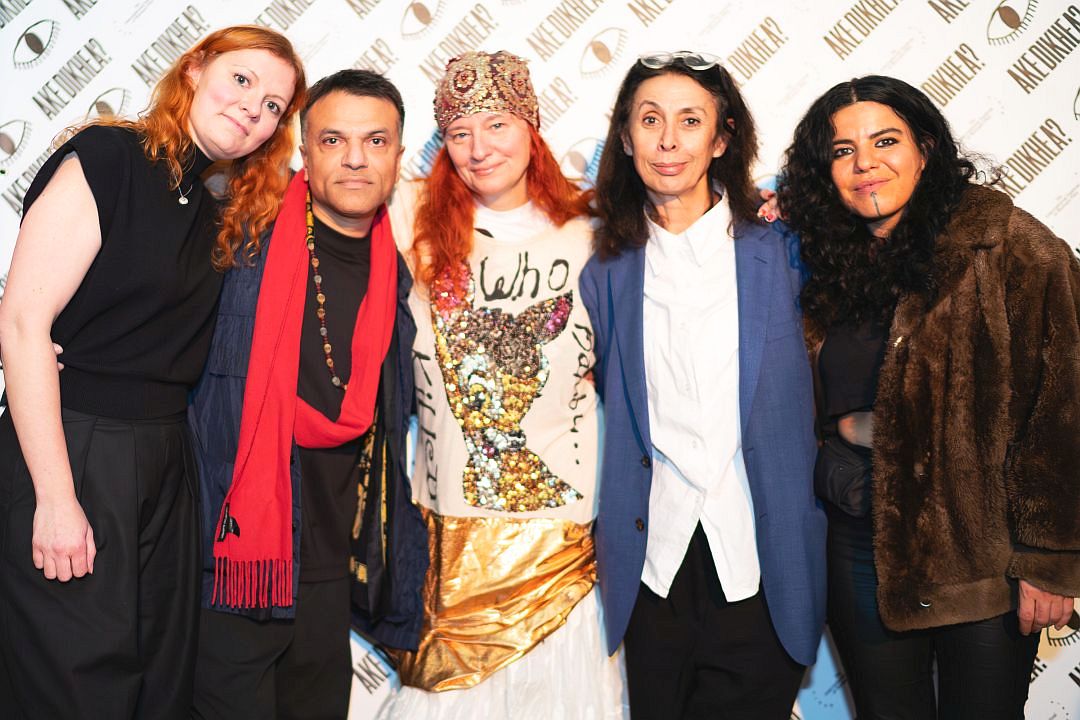
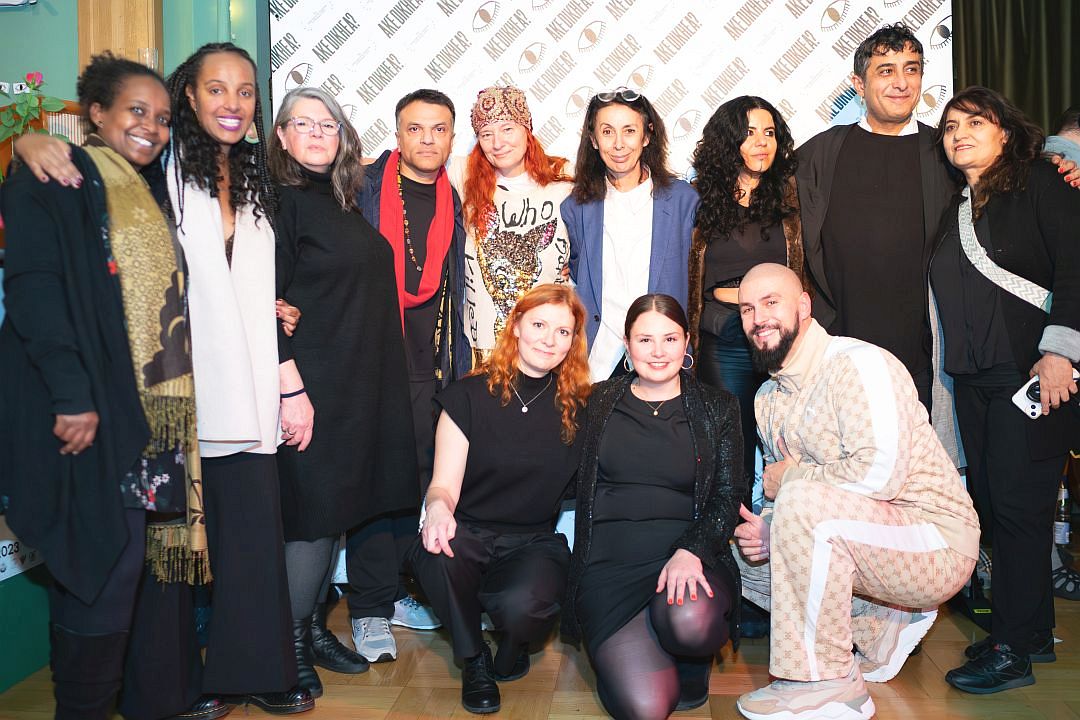
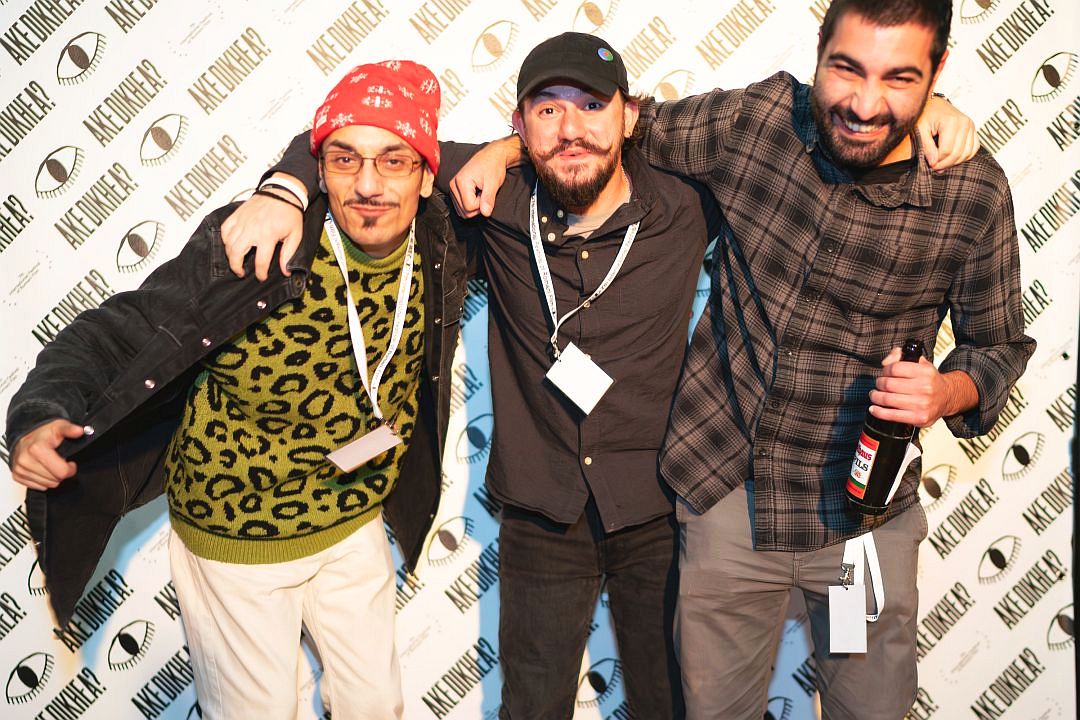

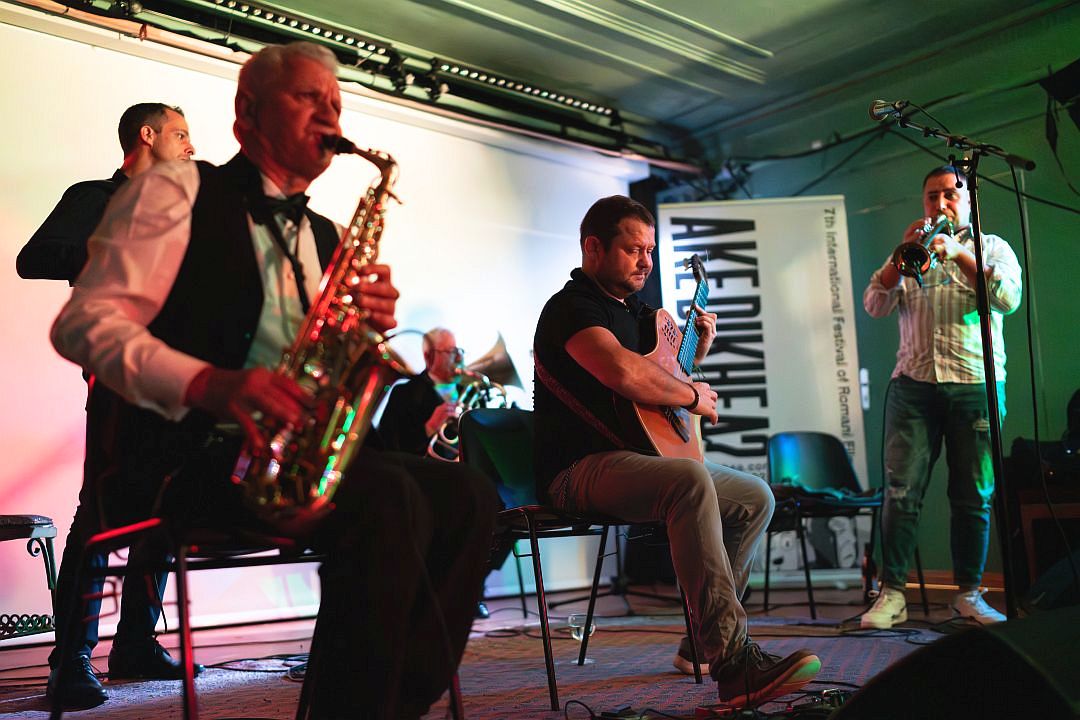
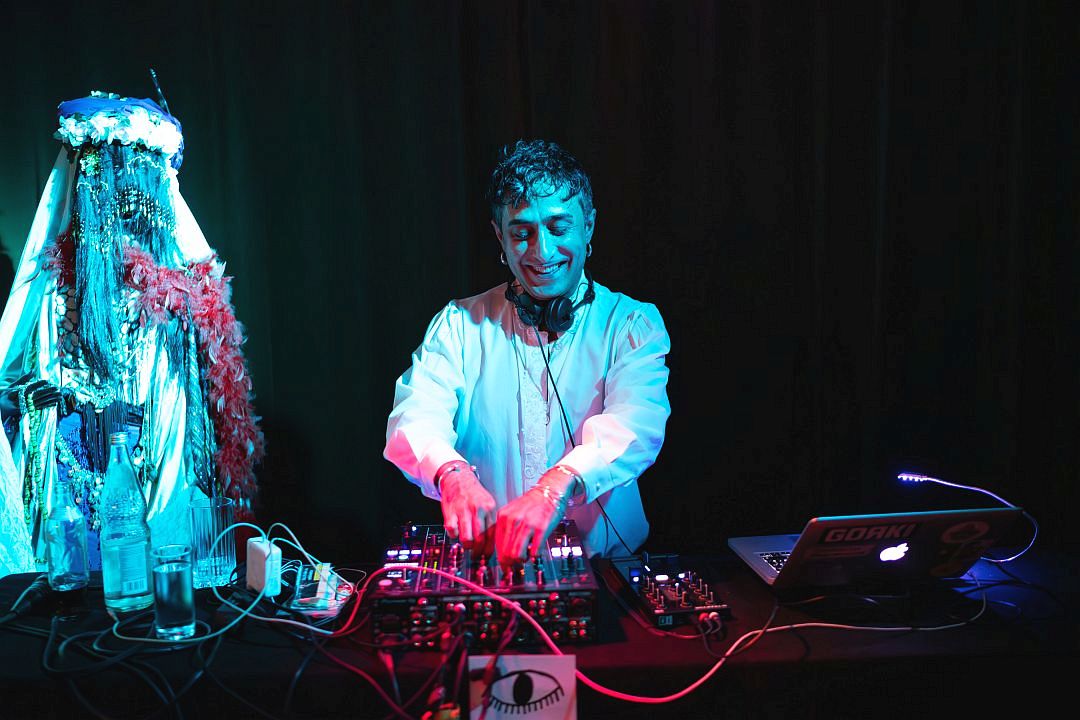
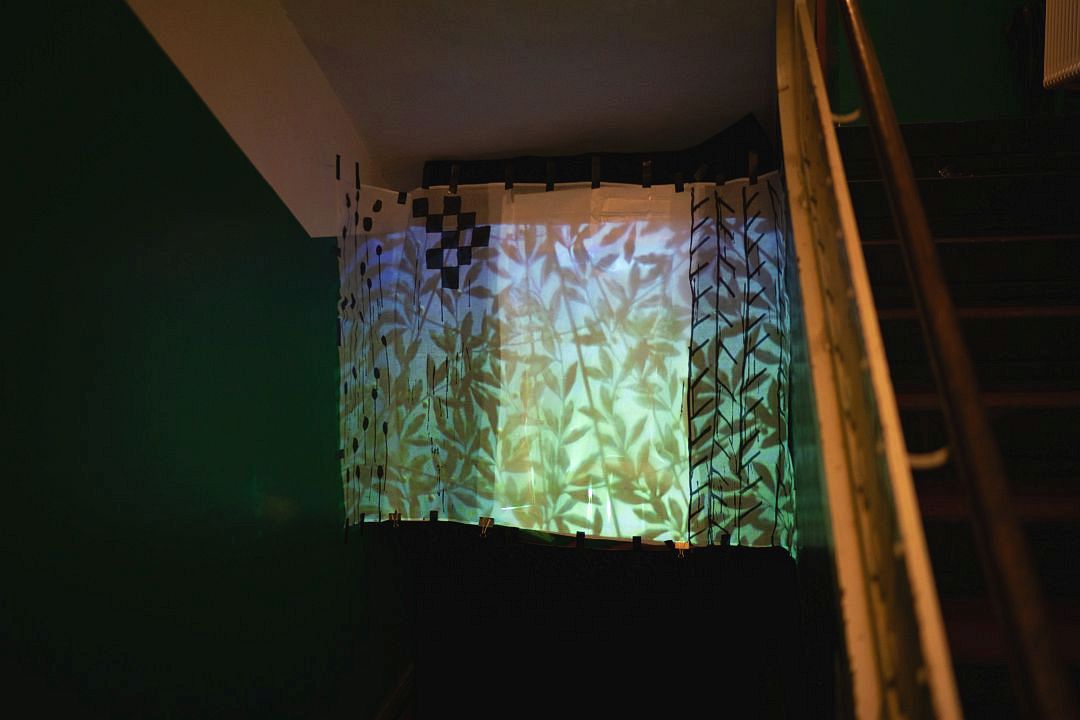
Photos © Stephanie Ballantine
Photos © Alexander Ali Rönisch
︎AKE DIKHEA? 2023: Awards and Honourable Mentions Now Public
30.10.2023
The jury of AKE DIKHEA? 2023 – Benita Bailey, Pamela
Cohn and Delaine Le Bas – found their favourite films! Also the Audience Choice
Award and an Honorable Mention by the Artistic Director are clear now. Check
out the awards and honorable mentions now:
Citizen Miko
By Robin Kvapil
Czech Republic ● 2022 ● 75’
Jury Statement:
Our jury gives this award to a film that shows the undeniable power of one individual to change many, many lives — those of his own family, as well as dozens of strangers he’ll never meet. The director follows his main protagonist from the humble circumstances of his own life to the halls of European political power, all the while infusing the story with an exhilarating portrait of a generous, fully awake, and driven human being, one who means to change the world one truckload at a time. The jury gives the Best Feature Film award to Robin Kvapil’s “Citizen Miko”.
Chavo
By Alecio Araci
Sweden ● 2023 ● 15’
Jury Statement:
This ground-breaking short film explores the intersectionality of identity and trauma, celebrating the diversity within the Roma community and queerness. It addresses themes of self-acceptance, love, grief, and intergenerational relations, fearlessly tackling taboos. With its poignant storytelling, authentic representation, and emotional depth, viewers are captivated by the twists and aesthetic brilliance. Every detail in the film tells a story, shedding light on lesser-discussed hierarchies within the Roma culture. By doing so, the film reflects back to the community a new narrative. The director said, this film is a means for himself to heal. We, the jury, believe this film gives audiences of the Roma community, the LGBTQ+ community, and all other communities the opportunity to heal as well. The prize for the Best Short Film of the 7th International Roma Film Festival goes to “Chavo”.
Matthew Mark Luke John
By Tom Wilson
Romania ● 2018 ● 70’
As an International Festival of Romani Film, we are especially happy that the film “Matthew Mark Luke John” won the Audience Choice Award. The feature film was shot in Romania in a Romani village of which over the half of its population migrated to Germany and found a new home in Berlin. These are people very active at RomaTrial, the association organizing AKE DIKHEA? since 2017. More than 15 young people originally from this Romanian village supported our festival as volunteers. We were happy that most of the audience of the screening of “Matthew Mark Luke John” came from the Romani community and that they made their voices be heard!
Three Thousand Numbered Pieces
By Ádám Császi
Ensemble Cast: Kristóf Horváth, Franciska Farkas, Edmond Oláh, Rómeó Pápai, Cristopher Pászik, Norbert Varga
Hungary ● 2022 ● 93’
Jury Statement:
As the jury we discussed how we need to work together to “decolonise our imaginations” to quote the festival and the spaces we are in. For the film which we found outstanding on so many levels, these are the questions which we hand back to the director to discuss further and address and so therefore we give a Jury Special Mention to the ensemble cast of Three Thousand Numbered Pieces for their outstanding contributions.
Lavina
By Farzad Samsami
Norway ● 2022 ● 18’
Jury Statement:
Our jury wanted to recognise this beautiful fictional family portrait with an Honourable Mention —not only for the director’s accomplished script filled with painful silences and halting declarations of love and his adept and sensitive direction, but also for the deeply nuanced and moving performance from its lead, played by Angel Jansen, a young talent to watch. The Honourable Mention for a Short Film goes to Farzad Samsami’s “Lavina”.
Fifteen Minutes
By Sejad Ademaj
Germany ● 2022 ● 13‘
Statement of the Artistic Director:
The film not only brings my personal story to the screen, but also my long-standing political concern: the right to stay for Roma in Germany and a stop to the deportation of people who were born and raised here. And especially in times of the planned tightening of asylum laws and the upcoming massive deportations of many different people, this film is more important than ever. “Fifteen Minutes” shows in an authentic and empathetic way how a political decision can turn a happy everyday moment into a disaster for an entire family.
Best Feature Film
Citizen Miko
By Robin Kvapil
Czech Republic ● 2022 ● 75’
Jury Statement:
Our jury gives this award to a film that shows the undeniable power of one individual to change many, many lives — those of his own family, as well as dozens of strangers he’ll never meet. The director follows his main protagonist from the humble circumstances of his own life to the halls of European political power, all the while infusing the story with an exhilarating portrait of a generous, fully awake, and driven human being, one who means to change the world one truckload at a time. The jury gives the Best Feature Film award to Robin Kvapil’s “Citizen Miko”.
Best Short Film
Chavo
By Alecio Araci
Sweden ● 2023 ● 15’
Jury Statement:
This ground-breaking short film explores the intersectionality of identity and trauma, celebrating the diversity within the Roma community and queerness. It addresses themes of self-acceptance, love, grief, and intergenerational relations, fearlessly tackling taboos. With its poignant storytelling, authentic representation, and emotional depth, viewers are captivated by the twists and aesthetic brilliance. Every detail in the film tells a story, shedding light on lesser-discussed hierarchies within the Roma culture. By doing so, the film reflects back to the community a new narrative. The director said, this film is a means for himself to heal. We, the jury, believe this film gives audiences of the Roma community, the LGBTQ+ community, and all other communities the opportunity to heal as well. The prize for the Best Short Film of the 7th International Roma Film Festival goes to “Chavo”.
Audience Choice Award
Matthew Mark Luke John
By Tom Wilson
Romania ● 2018 ● 70’
As an International Festival of Romani Film, we are especially happy that the film “Matthew Mark Luke John” won the Audience Choice Award. The feature film was shot in Romania in a Romani village of which over the half of its population migrated to Germany and found a new home in Berlin. These are people very active at RomaTrial, the association organizing AKE DIKHEA? since 2017. More than 15 young people originally from this Romanian village supported our festival as volunteers. We were happy that most of the audience of the screening of “Matthew Mark Luke John” came from the Romani community and that they made their voices be heard!
Jury Special Mention to the Ensemble Cast
Three Thousand Numbered Pieces
By Ádám Császi
Ensemble Cast: Kristóf Horváth, Franciska Farkas, Edmond Oláh, Rómeó Pápai, Cristopher Pászik, Norbert Varga
Hungary ● 2022 ● 93’
Jury Statement:
As the jury we discussed how we need to work together to “decolonise our imaginations” to quote the festival and the spaces we are in. For the film which we found outstanding on so many levels, these are the questions which we hand back to the director to discuss further and address and so therefore we give a Jury Special Mention to the ensemble cast of Three Thousand Numbered Pieces for their outstanding contributions.
Short Film Honorable Mention
Lavina
By Farzad Samsami
Norway ● 2022 ● 18’
Jury Statement:
Our jury wanted to recognise this beautiful fictional family portrait with an Honourable Mention —not only for the director’s accomplished script filled with painful silences and halting declarations of love and his adept and sensitive direction, but also for the deeply nuanced and moving performance from its lead, played by Angel Jansen, a young talent to watch. The Honourable Mention for a Short Film goes to Farzad Samsami’s “Lavina”.
Honorable Mention by the Artistic Director
Fifteen Minutes
By Sejad Ademaj
Germany ● 2022 ● 13‘
Statement of the Artistic Director:
The film not only brings my personal story to the screen, but also my long-standing political concern: the right to stay for Roma in Germany and a stop to the deportation of people who were born and raised here. And especially in times of the planned tightening of asylum laws and the upcoming massive deportations of many different people, this film is more important than ever. “Fifteen Minutes” shows in an authentic and empathetic way how a political decision can turn a happy everyday moment into a disaster for an entire family.

